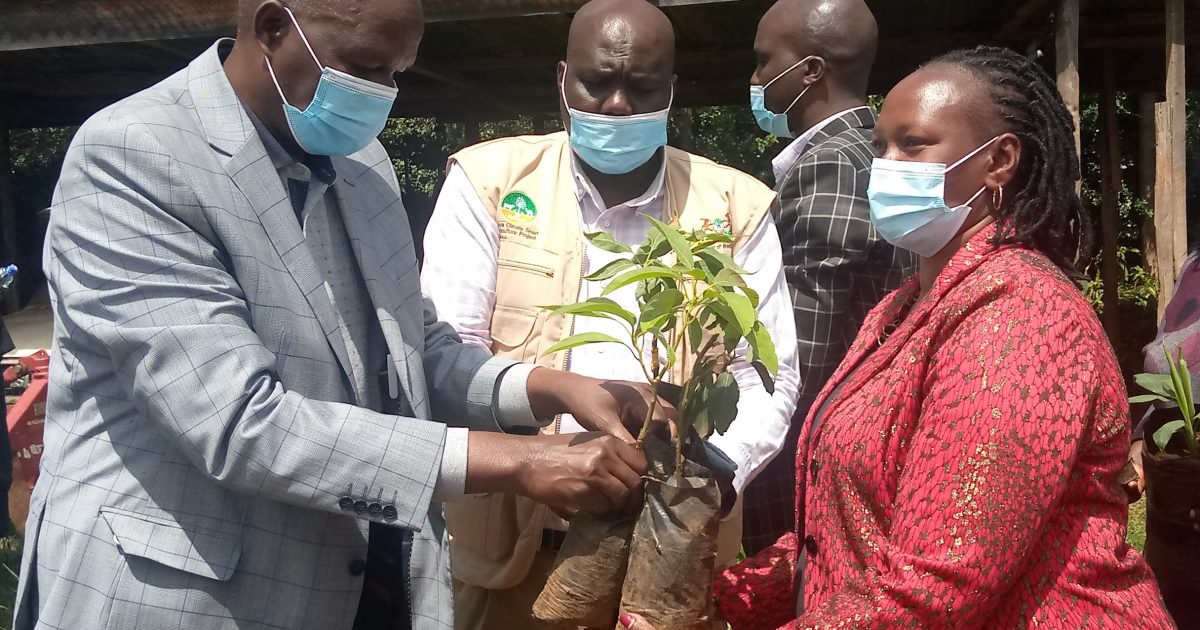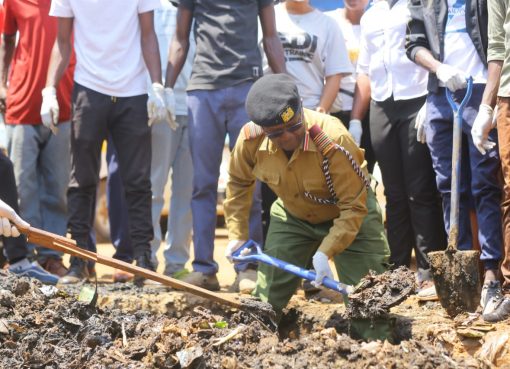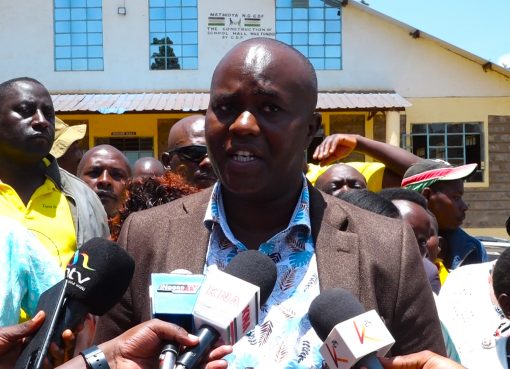Livestock farmers in high potential areas of Koibatek sub county, Baringo County, have been urged to upgrade their breeds in order to increase milk production and farm incomes in the area.
Speaking at Koibatek Agricultural Training Centre (ATC) in Eldama Ravine during distribution of 40,000 assorted seedlings, Governor Stanley Kiptis called on area residents to take livestock sub-sector seriously in order to improve their socio-economic wellbeing and fight off poverty and over dependence on milk supply from neighbouring counties.
Kiptis noted that the highland zones of the county are capable of producing more milk but farmers were reluctant to adopt modern agricultural best practices like Artificial Insemination (AI) as well as breed and pasture.
“It is sad that we are still getting milk from areas outside our county yet we have chunks of land where we can keep animals and grow hay,” said Kiptis.
He urged farmers to take into consideration the kind of breeds they keep and the pasture they consume because it is a lucrative business that is seldom affected by unpredictable weather patterns.
The governor said that those who live in regions that do not support crop farming such as Tiaty, Mogotio and parts of Baringo North and Marigat have been supported with new breeds of Gala bucks, Doper sheep, Sahiwal cows as well as high value chick to empower them economically.
He added that his administration will fast track the on-going construction of Baringo County Milk processing plant in Eldama Ravine being put up at a cost Sh 17 million and distribute milk coolers to Mochongoi and Eldama Ravine to ensure that milk collected within the sub counties are delivered to these coolers.
County Executive Committee (CEC) for Agriculture and Livestock Development Dr. Joel Koima reiterated the need for residents to take advantage of the large pieces of land especially around Eldama Ravine area which has suitable climate for breeding dairy cows.
“Let us take advantage of the good weather we have here in Eldama Ravine to be the leading milk producers in the county,” Dr. Koima appealed.
At the same time, he encouraged residents to prioritize livestock programmes in the area by setting up more funds for development through public participation forums.
Chief Officer (CO) for agriculture Wilfred Kiplagat said that keeping livestock will go a long way in improving nutrition and enabling farmers to generate more income to pay fees and meet other financial obligations at household level.
Kiplagat also called on local dairy farmers to join cooperative societies to improve their bargaining power and market linkages and avoid being exploited by brokers.
By Betty Malakwen and Joshua Kibet





